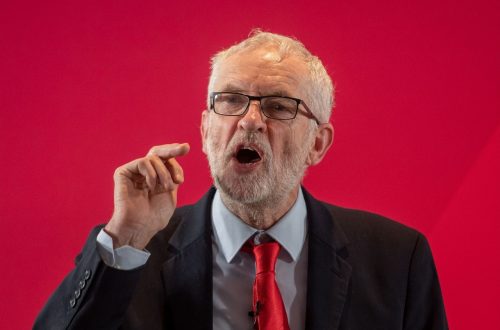A guest post: The blogger formerly known as British Spin comes out of retirement to offer Harry’s Place his views on the Blunkett resignation.
In acting they say never work with children and animals. In politics it clear that nannies are the touch of death.
In America bull necked, moustachioed former village people member Bernard Kerik has decided to withdraw from nomination as Secretary for Homeland Security not because he is alleged to be a corrupt and incompetent bigamist with mobbed up friends, but because he employed an illegal immigrant as a nanny.
Riiiight.
Over here, Home Secretary David Blunkett (a roughly analogous position) has resigned not because of proposals to introduce ID cards, Belmarsh High security Prison (the “British Guantamo”), or because of crime rates, but because he allegedly spoke to someone in his office about a visa.
Blunkett is denying this stoutly and wholeheartedly, but for the sake of argument let’s assume that the soon to be ex-Home Secretary has decided to stake his reputation on a falsehood.
He is alleged to have mentioned to one of his officials that a friend was having difficulty with an immigration application and could some one take a look at it?
What next? An enquiry into whether John Prescott used his office phone for a personal phone call?
Blunkett is not accused of personal corruption.
He is not accused of changing policy for personal profit or those of friends
He is not accused of doing anything at all to benefit himself.
He is accused of helping out a friend who had asked for help in getting something done that was in line with official policy.
Even then the evidence is that he is accused of only mentioning the fact that a friend had complained that a certain immigration application was taking a while.
For this he has to resign
To be fair, the real objection is that only a few people will ever get to make their problems with the system noticed by the home secretary. That’s entirely reasonable on the surface, but I don’t think it holds up.
Having seen one or two newspaper editors in action, I think that it is just possible that they would consider using their influence to secure favourable treatment, and even, dare I say it, take against a politician or project who refused to help them out. Remember the opening of the Dome?
We expect our politicians to be automata, never to help a friend, make a personal enquiry or help out a colleague. Fair enough, if that’s the standard we expect from those in public life, but at we should recognise that they operate in a world of important and self important people who expect that their connections should mean they get priority.
Ideally the important and well connected would be cold shouldered, but is it really possible? Who doesn’t get requests for advice on areas of expertise from friends and family? Accountants doing tax advice, lawyers looking over contracts, journalists helping a son or daughter meet an editor here or there is the stock in trade of social life. Personal connections matter. There are whole industries founded on their importance. They matter because we are human.
The question surely shouldn’t be whether a politician lifts a finger to help a friend- but whether that help, if given, results in a distortion of policy, corruption or special treatment that is unavailable to others.
If Blunkett did deliberately distort the work of the Home Office to fit his personal interests then there is a clear case for his resignation. He agreed as much when opening up the Budd enquiry into his conduct. Otherwise he is simply another victim of a political culture that regards politicians as corrupt, grasping and deceptive and chooses to tear them to pieces on even the slightest evidence of behaviour that would be considered normal in any other profession.
– British Spin


